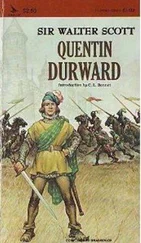Walter Scott - Letters on Demonology and Witchcraft
Здесь есть возможность читать онлайн «Walter Scott - Letters on Demonology and Witchcraft» весь текст электронной книги совершенно бесплатно (целиком полную версию без сокращений). В некоторых случаях можно слушать аудио, скачать через торрент в формате fb2 и присутствует краткое содержание. Жанр: История, на английском языке. Описание произведения, (предисловие) а так же отзывы посетителей доступны на портале библиотеки ЛибКат.
- Название:Letters on Demonology and Witchcraft
- Автор:
- Жанр:
- Год:неизвестен
- ISBN:нет данных
- Рейтинг книги:4 / 5. Голосов: 1
-
Избранное:Добавить в избранное
- Отзывы:
-
Ваша оценка:
- 80
- 1
- 2
- 3
- 4
- 5
Letters on Demonology and Witchcraft: краткое содержание, описание и аннотация
Предлагаем к чтению аннотацию, описание, краткое содержание или предисловие (зависит от того, что написал сам автор книги «Letters on Demonology and Witchcraft»). Если вы не нашли необходимую информацию о книге — напишите в комментариях, мы постараемся отыскать её.
Letters on Demonology and Witchcraft — читать онлайн бесплатно полную книгу (весь текст) целиком
Ниже представлен текст книги, разбитый по страницам. Система сохранения места последней прочитанной страницы, позволяет с удобством читать онлайн бесплатно книгу «Letters on Demonology and Witchcraft», без необходимости каждый раз заново искать на чём Вы остановились. Поставьте закладку, и сможете в любой момент перейти на страницу, на которой закончили чтение.
Интервал:
Закладка:
In 1720, an unlucky boy, the third son of James, Lord Torphichen, took it into his head, under instructions, it is said, from a knavish governor, to play the possessed and bewitched person, laying the cause of his distress on certain old witches in Calder, near to which village his father had his mansion. The women were imprisoned, and one or two of them died; but the Crown counsel would not proceed to trial. The noble family also began to see through the cheat. The boy was sent to sea, and though he is said at one time to have been disposed to try his fits while on board, when the discipline of the navy proved too severe for his cunning, in process of time he became a good sailor, assisted gallantly in defence of the vessel against the pirates of Angria, and finally was drowned in a storm.
In the year 1722, a Sheriff-depute of Sutherland, Captain David Ross of Littledean, took it upon him, in flagrant violation of the then established rules of jurisdiction, to pronounce the last sentence of death for witchcraft which was ever passed in Scotland. The victim was an insane old woman belonging to the parish of Loth, who had so little idea of her situation as to rejoice at the sight of the fire which was destined to consume her. She had a daughter lame both of hands and feet, a circumstance attributed to the witch's having been used to transform her into a pony, and get her shod by the devil. It does not appear that any punishment was inflicted for this cruel abuse of the law on the person of a creature so helpless; but the son of the lame daughter, he himself distinguished by the same misfortune, was living so lately as to receive the charity of the present Marchioness of Stafford, Countess of Sutherland in her own right, to whom the poor of her extensive country are as well known as those of the higher order.
Since this deplorable action there has been no judicial interference in Scotland on account of witchcraft, unless to prevent explosions of popular enmity against people suspected of such a crime, of which some instances could be produced. The remains of the superstition sometimes occur; there can be no doubt that the vulgar are still addicted to the custom of scoring above the breath [84] [84] Drawing blood, that is, by two cuts in the form of a cross on the witch's forehead, confided in all throughout Scotland as the most powerful counter charm.
(as it is termed), and other counter-spells, evincing that the belief in witchcraft is only asleep, and might in remote corners be again awakened to deeds of blood. An instance or two may be quoted chiefly as facts known to the author himself.
In a remote part of the Highlands, an ignorant and malignant woman seems really to have meditated the destruction of her neighbour's property, by placing in a cow-house, or byre as we call it, a pot of baked clay containing locks of hair, parings of nails, and other trumpery. This precious spell was discovered, the design conjectured, and the witch would have been torn to pieces had not a high-spirited and excellent lady in the neighbourhood gathered some of her people (though these were not very fond of the service), and by main force taken the unfortunate creature out of the hands of the populace. The formidable spell is now in my possession.
About two years since, as they were taking down the walls of a building formerly used as a feeding-house for cattle, in the town of Dalkeith, there was found below the threshold-stone the withered heart of some animal stuck full of many scores of pins—a counter-charm, according to tradition, against the operations of witchcraft on the cattle which are kept within. Among the almost innumerable droves of bullocks which come down every year from the Highlands for the south, there is scarce one but has a curious knot upon his tail, which is also a precaution lest an evil eye or an evil spell may do the animal harm.
The last Scottish story with which I will trouble you happened in or shortly after the year 1800, and the whole circumstances are well known to me. The dearth of the years in the end of the eighteenth and beginning of this century was inconvenient to all, but distressing to the poor. A solitary old woman, in a wild and lonely district, subsisted chiefly by rearing chickens, an operation requiring so much care and attention that the gentry, and even the farmers' wives, often find it better to buy poultry at a certain age than to undertake the trouble of bringing them up. As the old woman in the present instance fought her way through life better than her neighbours, envy stigmatized her as having some unlawful mode of increasing the gains of her little trade, and apparently she did not take much alarm at the accusation. But she felt, like others, the dearth of the years alluded to, and chiefly because the farmers were unwilling to sell grain in the very moderate quantities which she was able to purchase, and without which her little stock of poultry must have been inevitably starved. In distress on this account, the dame went to a neighbouring farmer, a very good-natured, sensible, honest man, and requested him as a favour to sell her a peck of oats at any price. "Good neighbour," he said, "I am sorry to be obliged to refuse you, but my corn is measured out for Dalkeith market; my carts are loaded to set out, and to open these sacks again, and for so small a quantity, would cast my accounts loose, and create much trouble and disadvantage; I dare say you will get all you want at such a place, or such a place." On receiving this answer, the old woman's temper gave way. She scolded the wealthy farmer, and wished evil to his property, which was just setting off for the market. They parted, after some angry language on both sides; and sure enough, as the carts crossed the ford of the river beneath the farm-house, off came the wheel from one of them, and five or six sacks of corn were damaged by the water. The good farmer hardly knew what to think of this; there were the two circumstances deemed of old essential and sufficient to the crime of witchcraft— Damnum minatum, et malum secutum . Scarce knowing what to believe, he hastened to consult the sheriff of the county, as a friend rather than a magistrate, upon a case so extraordinary. The official person showed him that the laws against witchcraft were abrogated, and had little difficulty to bring him to regard the matter in its true light of an accident.
It is strange, but true, that the accused herself was not to be reconciled to the sheriffs doctrine so easily. He reminded her that, if she used her tongue with so much license, she must expose herself to suspicions, and that should coincidences happen to irritate her neighbours, she, might suffer harm at a time when there was no one to protect her. He therefore requested her to be more cautious in her language for her own sake, professing, at the same time, his belief that her words and intentions were perfectly harmless, and that he had no apprehension of being hurt by her, let her wish her worst to him. She was rather more angry than pleased at the well-meaning sheriffs scepticism. "I would be laith to wish ony ill either to you or yours, sir," she said; "for I kenna how it is, but something aye comes after my words when I am ill-guided and speak ower fast." In short, she was obstinate in claiming an influence over the destiny of others by words and wishes, which might have in other times conveyed her to the stake, for which her expressions, their consequences, and her disposition to insist upon their efficacy, would certainly of old have made her a fit victim. At present the story is scarcely worth mentioning, but as it contains material resembling those out of which many tragic incidents have arisen.
So low, in short, is now the belief in witchcraft, that perhaps it is only received by those half-crazy individuals who feel a species of consequence derived from accidental coincidences, which, were they received by the community in general, would go near, as on former occasions, to cost the lives of those who make their boast of them. At least one hypochondriac patient is known to the author, who believes himself the victim of a gang of witches, and ascribes his illness to their charms, so that he wants nothing but an indulgent judge to awake again the old ideas of sorcery.
Читать дальшеИнтервал:
Закладка:
Похожие книги на «Letters on Demonology and Witchcraft»
Представляем Вашему вниманию похожие книги на «Letters on Demonology and Witchcraft» списком для выбора. Мы отобрали схожую по названию и смыслу литературу в надежде предоставить читателям больше вариантов отыскать новые, интересные, ещё непрочитанные произведения.
Обсуждение, отзывы о книге «Letters on Demonology and Witchcraft» и просто собственные мнения читателей. Оставьте ваши комментарии, напишите, что Вы думаете о произведении, его смысле или главных героях. Укажите что конкретно понравилось, а что нет, и почему Вы так считаете.









